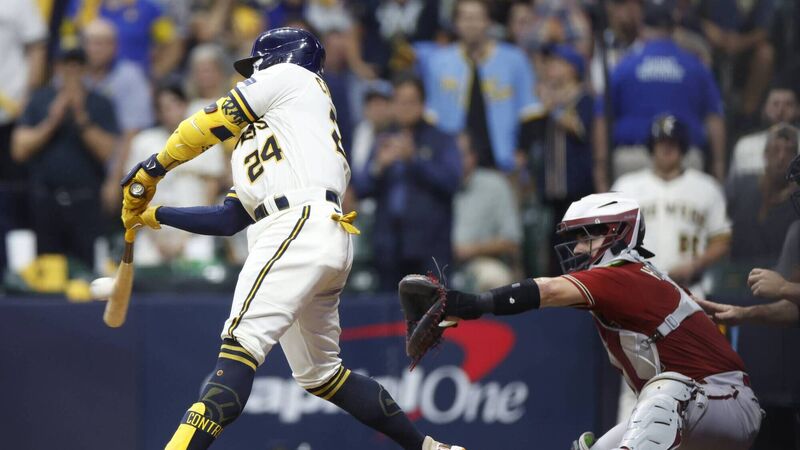John Riordan: Americans not alone in putting marketing over substance

AMERICA'S GAME: William Contreras of the Milwaukee Brewers singles during the eighth inning against the Arizona Diamondbacks in Game Two of the Wild Card Series. Picture: John Fisher/Getty Images
“Oh, one last thing,” I said at the end of a coffee meeting Wednesday morning, slightly desperately seeking out one last thread of connection. “Are you watching the Game Twos later?” He computed for an awkward second or two. What on earth could I be prattling on about? Slowly it dawned on him that the Major League Baseball playoffs were underway, potential wild card deciders set for that afternoon and evening and taking place in packed out ballparks in Florida and Minnesota, Wisconsin and Pennsylvania. All very heartlandy and wholesome.
He grew up with baseball, he told me, he could tell me anything about baseball. But he doesn’t watch baseball. What’s the point any more?












